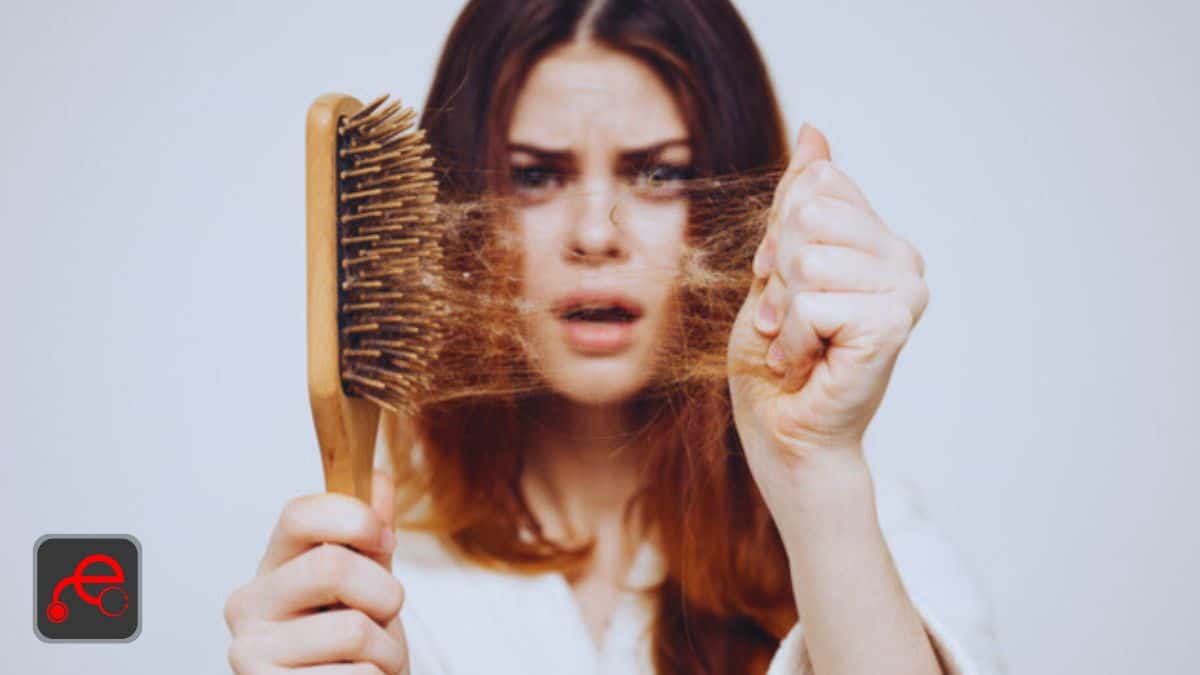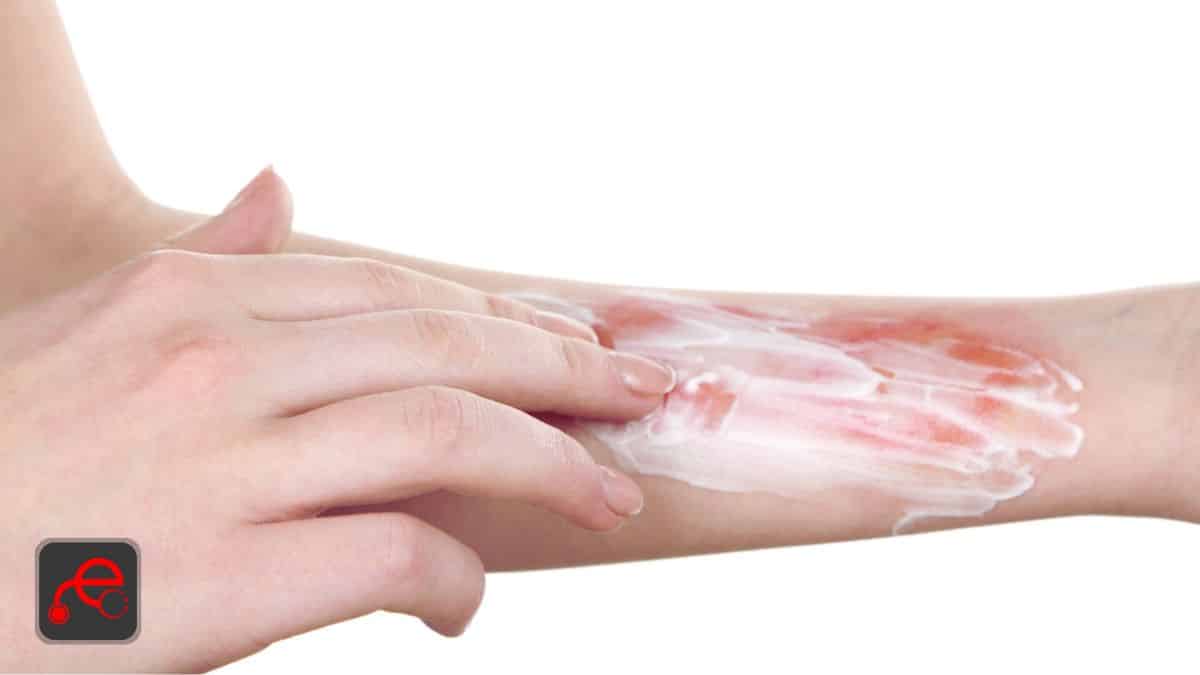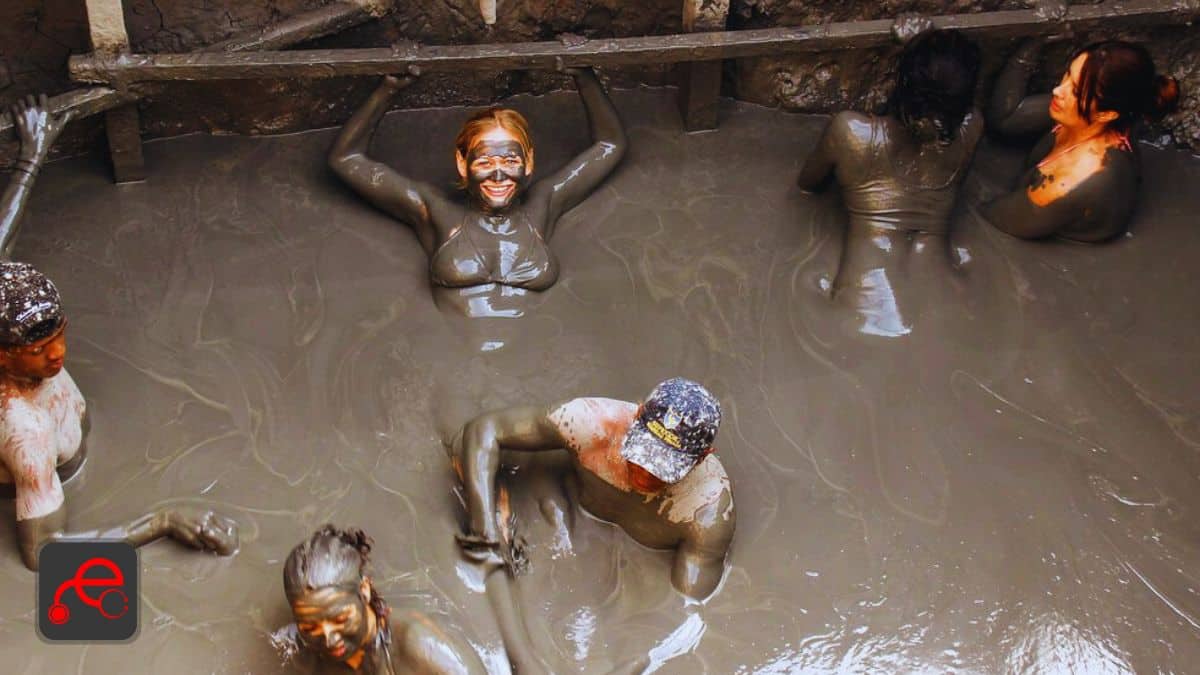Say Goodbye to Hair Fall: Learn How to Stop Hair Fall!

Hair fall can be caused by a variety of factors, including genetics, hormonal changes, medical conditions, and certain medications. Genetics plays a major role in hair loss, with a condition called androgenetic alopecia being the most common form of hair loss in both men and women. Hormonal changes, such as those that occur during pregnancy, menopause, or with the use of hormonal birth control, can also lead to hair loss. Medical conditions, such as thyroid disease and iron-deficiency anemia, can also cause hair loss. Certain medications, including those used to treat cancer, depression, and high blood pressure, can also cause hair loss as a side effect. In this article, we talk about Tips and Tricks for Stopping Hair Fall Naturally.
How To Avoid Hair Fall Naturally
To avoid hair fall, it’s important to maintain a healthy diet, exercise regularly, and manage stress levels. Eating a diet rich in protein, vitamins, and minerals can help to support healthy hair growth. Exercising regularly can also help to improve blood flow to the scalp, which can promote hair growth. Managing stress levels can also help to reduce hair fall, as stress can cause hair loss. These are important tips and tricks for stopping hair fall naturally.
It’s also important to take care of your hair properly by using gentle hair care products, avoiding harsh chemical treatments, and avoiding excessive heat styling. Using a gentle shampoo and conditioner can help to keep your hair healthy and strong. Avoiding harsh chemical treatments such as bleaching, perming or straightening, can also help to reduce hair fall. It’s also a good idea to avoid excessive heat styling, such as blow-drying and flat-ironing your hair, as this can cause damage and breakage.
Lastly, it is good to consult a trichologist or a dermatologist if you experience sudden hair fall or if it is severe. This could be due to an underlying medical condition that needs attention.
There are several ways to help prevent hair fall:
- Maintain a healthy diet: Eating a diet rich in vitamins and minerals, such as iron, zinc, and Vitamin D, can help keep your hair healthy.
- Avoid harsh hairstyles: Tight ponytails, braids, and buns can put stress on your hair, leading to breakage and hair loss.
- Be gentle when washing and styling your hair: Use a gentle shampoo and conditioner, and avoid using heat styling tools on a daily basis.
- Avoid excessive use of chemical products: Perming, dying, and straightening hair frequently can damage the hair and lead to hair loss.
- Handle your hair with care: Avoid pulling, tugging, or rubbing your hair when it is wet, as it is more prone to breakage.
- Reduce stress: Stress can cause hair loss, so try to find ways to relax, such as yoga, meditation, or exercise.
- Consult a dermatologist: If you are experiencing excessive hair fall, it’s best to consult a dermatologist to identify and address the underlying cause.
It is also important to note that some hair loss is normal and a part of the hair growth cycle, but if you notice excessive hair fall or bald patches, it’s best to consult a doctor or a trichologist.
Tips For Controlling Hair Fall Naturally
Here are some tips and tricks for stopping hair fall naturally:
- Use a gentle shampoo and conditioner: Avoid using harsh products that can strip your hair of its natural oils.
- Brush your hair gently: Use a wide-toothed comb or a brush with soft bristles to avoid pulling or tugging on your hair.
- Massage your scalp: Scalp massages can help increase blood flow to the hair follicles and promote hair growth.
- Avoid tight hairstyles: Tight ponytails, braids, and buns can cause hair to break or fall out.
- Trim your hair regularly: Regular haircuts can help remove split ends and damaged hair, which can reduce hair fall.
- Use natural oils: Oiling your hair with natural oils such as coconut oil, castor oil, or almond oil can help nourish the scalp and hair.
- Avoid excessive heat styling: Using heat styling tools on a daily basis can damage the hair and lead to hair fall.
- Get enough sleep: Lack of sleep can cause stress, which in turn can lead to hair fall.
- Exercise regularly: Regular exercise can help improve blood flow to the scalp and promote hair growth.
- Consult a doctor or trichologist: If you are experiencing excessive hair fall, it’s best to consult a doctor or trichologist to identify and address the underlying cause.
- Keep your scalp clean: Regularly shampoo your hair to remove excess oil, dirt, and product buildup.
- Massage your scalp: Gently massaging your scalp can improve blood circulation and promote hair growth.
- Use a mild shampoo: Choose a mild shampoo that is free from harsh chemicals, such as sulfates and parabens.
- Use a wide-toothed comb: Wet hair is more fragile, so use a wide-toothed comb to detangle your hair gently.
- Avoid tight hairstyles: Tight hairstyles, such as ponytails and braids, can pull on your hair and cause damage.
- Protect your hair from heat: Use a heat protectant when using hot tools, such as hair dryers and straighteners.
- Keep your hair hydrated: Use a deep-conditioning treatment or hair mask to keep your hair hydrated and healthy.
- Get regular trims: Regular trims can help prevent split ends, which can lead to hair breakage and hair loss.
- Take care of your overall health: Maintain a healthy lifestyle, eat a balanced diet, and exercise regularly.
- Consult a trichologist: If you’re experiencing excessive hair fall, it’s best to consult a trichologist who can help identify the underlying cause and recommend a treatment plan.
Essential Oils That Help With Hair Fall
There are several essential oils that can help with hair fall, including:
- Rosemary oil: This oil is believed to improve blood circulation, which can promote hair growth. It is also said to be effective in treating hair loss caused by hormonal imbalances.
- Peppermint oil: Peppermint oil is believed to help stimulate hair growth by increasing blood flow to the scalp. It also has a cooling effect that can soothe an itchy scalp.
- Lavender oil: Lavender oil is said to be effective in treating hair loss caused by stress and anxiety. It also has a calming effect that can promote relaxation.
- Cedarwood oil: Cedarwood oil is said to be effective in treating hair loss caused by hormonal imbalances. It’s also believed to help stimulate hair growth by increasing blood flow to the scalp.
- Thyme oil: Thyme oil is believed to have antifungal and antiseptic properties that can help prevent scalp infections and promote hair growth.
- Olive oil: Olive oil is rich in vitamins and minerals that can nourish the hair and scalp, promoting healthy hair growth.
It’s important to note that the effectiveness of essential oils can vary from person to person and it’s always best to dilute it before applying to the scalp. It’s also recommended to do a patch test before using and discontinue if you experience any irritation or allergic reaction. It is always best to consult with an essential oil expert or a trichologist before using essential oils for hair loss.
Diet For Healthy Hair
A healthy diet can play a significant role in maintaining healthy hair. Here are some foods that can help promote healthy hair growth:
- Protein: Hair is made up of a protein called keratin, so it’s important to include plenty of protein in your diet. Good sources of protein include eggs, fish, chicken, and lean meats.
- Iron: Iron helps to carry oxygen to the hair follicles, promoting healthy hair growth. Good sources of iron include leafy greens, red meat, and lentils.
- Vitamin C: Vitamin C helps the body absorb iron, and it also helps to keep the hair and scalp healthy. Good sources of Vitamin C include oranges, strawberries, and bell peppers.
- Zinc: Zinc is essential for healthy hair growth and repair. Good sources of zinc include oysters, shrimp, and beef.
- B vitamins: B vitamins, especially Biotin, are important for healthy hair growth. Good sources of B vitamins include eggs, nuts, and leafy greens.
- Omega-3 fatty acids: These healthy fats can help to keep the hair and scalp moisturized, preventing dryness and hair breakage. Good sources of Omega-3s include fatty fish, such as salmon, and flaxseed.
In addition to consuming these foods, it’s also important to stay hydrated by drinking plenty of water. It’s also recommended to consult a nutritionist or a trichologist to ensure that you’re getting the right balance of nutrients for your individual needs. These are good tips and tricks for stopping hair fall naturally.
Exercises And Yoga For Hair Growth
Exercise and yoga can help to promote healthy hair growth by improving blood circulation and reducing stress. Here are some exercises and yoga poses that can help:
- Cardiovascular exercise: Aerobic exercises such as running, cycling, or swimming can help to improve blood circulation and bring more oxygen and nutrients to the hair follicles.
- Scalp massage: Gently massaging the scalp with your fingers for a few minutes a day can help to increase blood flow to the hair follicles and promote hair growth.
- Yoga poses: Yoga poses such as the “downward facing dog,” “child’s pose,” and “camel pose” can help to increase blood flow to the head and improve circulation.
- Pranayama: Pranayama, or breathing exercises, can help to reduce stress, which can contribute to hair loss.
- Meditation: Regular meditation practice can help to reduce stress and improve overall well-being.
It is important to note that while exercise and yoga can help to promote healthy hair growth, they are not a substitute for proper hair care and nutrition. It’s also important to consult with a yoga or fitness professional before starting any new exercise routine.
It’s also important to note that excessive or intense exercise can lead to hair loss, it’s important to do it in moderation and include rest days, also it’s best to consult with a doctor or a trichologist if you’re experiencing excessive hair fall.
Medical Treatment For Hair Fall
There are several medical treatments that can help with hair fall, including:
- Minoxidil: Minoxidil is a topical medication that is applied to the scalp. It is believed to help increase blood flow to the hair follicles, promoting hair growth. It is available as an over-the-counter treatment and prescription treatment.
- Finasteride: Finasteride is a medication that is taken orally. It is used to treat male-pattern baldness by blocking the production of a hormone that contributes to hair loss.
- Platelet-rich plasma (PRP) therapy: PRP therapy is a procedure in which a person’s own blood is used to stimulate hair growth. The blood is processed to separate out the platelets, which are then injected into the scalp.
- Hair transplant: Hair transplant is a surgical procedure in which hair follicles are removed from one area of the scalp and transplanted to a bald or thinning area.
- Low-level laser therapy (LLLT): LLLT is a procedure in which a low-power laser is directed at the scalp to stimulate hair growth.
- Iron supplements or iron-rich diet: Iron-deficiency anemia can cause hair loss, so taking iron supplements or adding iron-rich foods to your diet can help with hair fall.
It’s important to note that these treatments may not be suitable for everyone and that the best treatment plan will depend on the underlying cause of hair loss. It’s always best to consult with a dermatologist or a trichologist to determine the most appropriate treatment for you.
FAQs
What are the main causes of hair fall?
Hair fall can be caused by a variety of factors, including genetics, hormonal changes, medical conditions, and certain medications. Genetics plays a major role in hair loss, with a condition called androgenetic alopecia being the most common form of hair loss in both men and women. Hormonal changes, such as those that occur during pregnancy, menopause, or with the use of hormonal birth control, can also lead to hair loss. Medical conditions, such as thyroid disease and iron-deficiency anemia, can also cause hair loss. Certain medications, including those used to treat cancer, depression, and high blood pressure, can also cause hair loss as a side effect.
How can I prevent hair fall?
Some ways to prevent hair fall include maintaining a healthy diet, avoiding harsh hairstyles, being gentle when washing and styling your hair, avoiding excessive use of chemical products, handling your hair with care, reducing stress, and consulting a dermatologist if you’re experiencing excessive hair fall.
Are there any natural remedies for hair fall?
There are several natural remedies that can help with hair fall, including essential oils, such as rosemary oil, peppermint oil, lavender oil, and cedarwood oil, as well as maintaining a healthy diet, reducing stress, and getting regular trims.
Can exercise and yoga help with hair fall?
Exercise and yoga can help promote healthy hair growth by improving blood circulation and reducing stress. Cardiovascular exercise, scalp massage, yoga poses, and meditation can be beneficial for hair growth.

